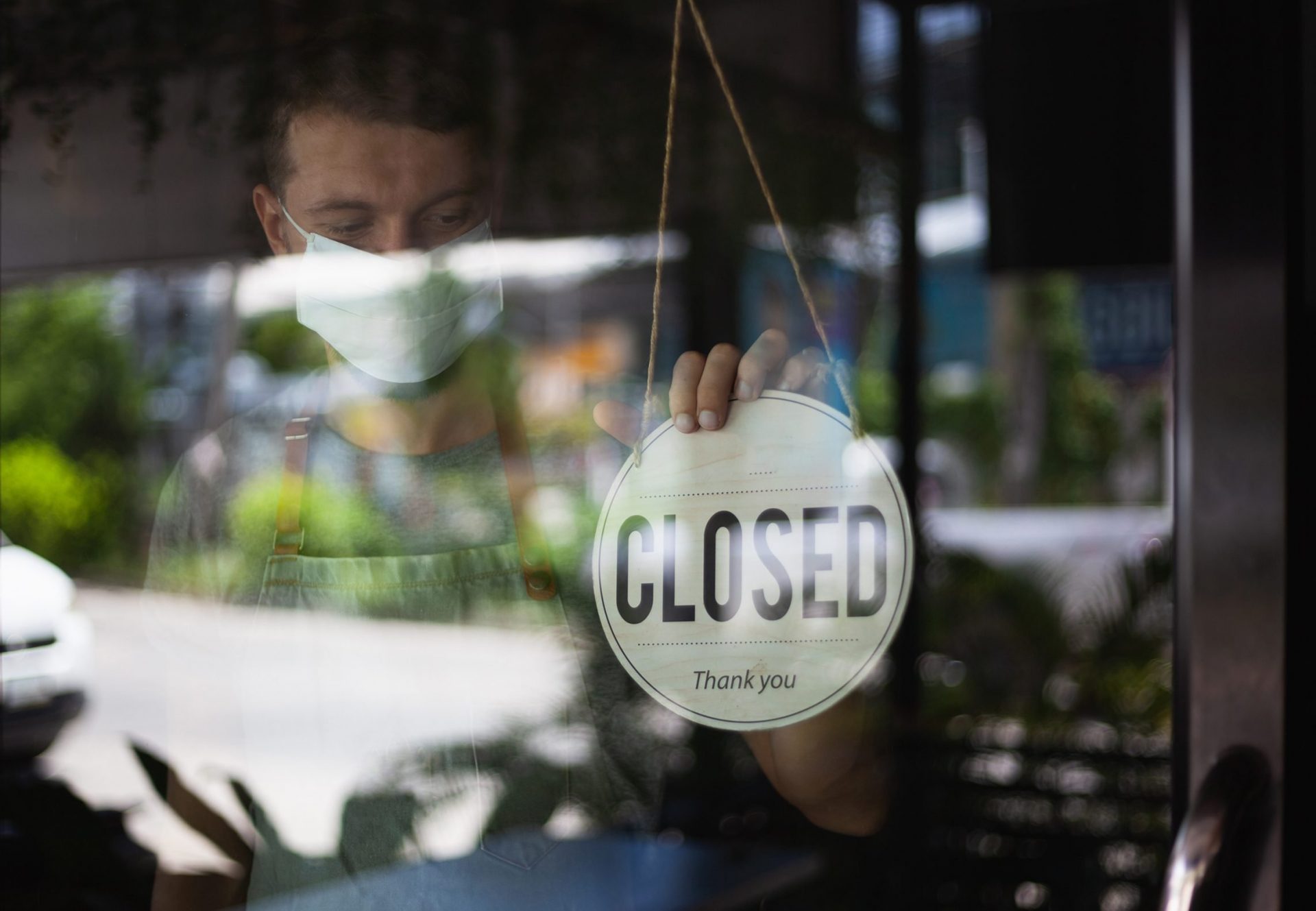Retail and Other Commercial Leases (COVID-19) Regulation 2021
In response to the latest COVID-19 outbreak and the resulting lockdown in Sydney, the NSW Government has re-introduced a number of emergency COVID-19 tenancy measures (first discussed in this earlier article).
The newest measures apply to both commercial and retail leases entered into prior to 26 June 2021, and contain a few key differences to the previous COVID-19 emergency regulation.
Read on to learn more about the impact of the COVID-19 emergency regulation for landlords, and for tenants.
COVID-19 emergency regulation for retail and commercial leases in NSW – key points
Important background to the COVID-19 emergency regulation – retail and commercial leases and key points to note include:
- Until 20 August 2021, retail and commercial landlords must attempt mediation before taking certain sorts of legal action against any tenants classified as an “impacted tenant”.
- To qualify as an “impacted tenant”, tenants must qualify for at least one of three government grants available due to the impact of the pandemic, have had an annual turnover below $50 million in the 2020-2021 financial year and provide evidence of this to their landlord.
- Landlords should be careful about taking any enforcement action against their tenants before 20 August 2021, although it is permissible to send payment reminders and rent arrears statements.
- The regulations, applying to both retail and commercial leases, do not apply to leases entered into on or after 26 June 2021.
Introduction of NSW economic support package and changes to the rights of landlords
On 13 July 2021, the NSW Government announced an economic support package to help businesses during the COVID-19 lockdown. A part of that package was the Retail and Other Commercial Leases (COVID-19) Regulation 2021 (the emergency regulation) which provides for a moratorium on certain sorts of enforcement action by landlords in NSW.
Limits to the rights of landlords under the COVID-19 emergency regulation
The Emergency regulation limits the exercise of certain rights by landlords under eligible retail and commercial leases where:
- the tenant is a business that qualifies for certain government grants due to the impact of the pandemic; and
- the breach is a “prescribed breach” that occurs between 13 July and 20 August 2021.
A “prescribed breach” is a failure to pay rent, failure to pay outgoings or a failure to operate the business in the hours specified in the lease.
Landlords need to be mindful of action taken under the COVID-19 emergency regulation
If an impacted tenant commits a “prescribed breach” of their lease, the landlords cannot take “prescribed action” against them, which means no:
- evicting the tenant;
- terminating the lease;
- claiming damages;
- claiming interest on unpaid rent;
- claiming under a guarantee or security bond; or
- seeking any other remedy available to a landlord against a tenant at common law or NSW legislation.
Before taking any action against a tenant, under the New COVID-19 emergency regulation landlords must first try to resolve the matter by mediation. See more below.
When does the COVID-19 emergency regulation apply to a tenancy?
The Emergency regulation follows on from the Retail and Other Commercial Leases (COVID-19) Regulation 2020 (No 3) and the National Code of Conduct for Commercial Tenancies (the National Code), both of which were introduced last year. While it does not reinstate the operation of the National Code, it introduces similar limited protections for certain “impacted tenants”.
The Emergency regulation applies to retail leases under the Retail Leases Act 1994 (NSW) and, by operation of an amendment to the Conveyancing (General) Regulation 2018 inserted by Schedule 1 of the Emergency regulation, it also applies to commercial leases under the Conveyancing Act 1919 (NSW). The same limits on landlords apply to impacted tenants of both retail and commercial leases.
The Emergency regulation does not apply to leases that commenced on or after 26 June 2021 (it is a lease arising from an option to extend or renew the lease, or any other extension or renewal of an existing lease on the same terms as the existing lease) or to leases under the Agricultural Tenancies Act 1990 (NSW).
Landlords must now attempt mediation under the COVID-19 emergency regulation
From 13 July 2021, before a landlord can take any prescribed action against an impacted tenant on the grounds of a prescribed breach the:
- matter must first have been referred for mediation under the Retail Leases Act 1994 (NSW), Pt 8 Div 2; and
- Registrar must have certified in writing that the mediation has failed to resolve the dispute.
Impacted tenants must give their landlord a statement that they are an impacted tenant, as well as evidence to that effect (although such “evidence” is not defined in the Emergency regulation). The statement is to be given as soon as practicable after the prescribed breach and within a reasonable time after the landlord has requested it.
Where the grants have opened recently, the Emergency regulation may initially be difficult to put into practice. In any event, its effect will be to prevent landlords from taking any prescribed action against a small- to medium-sized enterprise tenant until after 20 August 2021.
Non-COVID-19 related exemptions for landlords under the COVID-19 emergency regulation
Landlords can still take prescribed action against tenants when it is not related to the pandemic’s economic impact.
For example, under the Emergency regulation landlords can still terminate a commercial lease if the tenant has breached the lease by damaging the premises or may take action if a tenant fails to yield up possession of the leased premises when the lease term expires.
The Emergency regulation also does not prevent landlords and impacted tenants from reaching mutual agreement on action being taken in relation to the impacted lease, including where it is agreed for the landlord to take prescribed action or the parties agree to termination of the impacted lease.
What landlords in New South Wales should avoid
To comply with the Emergency regulation between now and 20 August 2021, it would be prudent for landlords in NSW not to:
- issue any formal letters of demand to a tenant for rental and/or outgoings arrears threatening to take further steps if the arrears are not paid;
- terminate any leases because of a tenant’s failure to pay rent or outgoings or a failure to trade;
- call on any bank guarantees for a tenant’s failure to pay rent or outgoings; or
- commence legal proceedings for a failure to pay rent or outgoings.
What action can landlords in New South Wales still take?
While formal letters of demand should not be issued, it is still in order for landlords to issue payment reminders or arrears statements to tenants for unpaid rent and outgoings and ask that those amounts be paid.
New eligibility requirements for COVID-19 “impacted tenants”
After 13 July 2021, to qualify as an “impacted lessee” (or “impacted tenant”), the tenant must be able to demonstrate that it:
- qualifies for one or more of the following grants:
- has had an annual turnover below $50 million in the 2020-2021 financial year.
The $50 million turnover limit is similar to the turnover test under the National Code, which was originally implemented by NSW in regulations introduced on 24 April 2020.
Each of these grants requires that the applicant tenant applicant suffers a reduction in revenue of more than 30%.
When will the COVID-19 emergency regulation expire?
Although the Emergency regulation imposes a protection period for retail and commercial tenancies until 20 August 2021, the Emergency regulation itself expires six months after commencement. This will presumably permit it to continue applying to mediation processes that continue after 20 August 2021.
It should be noted that the continuation of the Emergency regulation until January 2022 leaves open the possibility of the prescribed period to be extended.
What else can landlords and tenants do while the COVID-19 emergency regulations are in force?
Although we are all hoping that the latest COVID-19 lockdowns and restrictions are temporary, the reality may be that we are having to deal with them for some time to come.
Landlords and tenants should consider including pandemic specific provisions in the new leases, which contemplates the consequences if there are further lockdowns.
Still have questions or concerns about the impact of the COVID-19 emergency regulation on your tenancy?
Whether you are a landlord or a tenant if you require any guidance on your commercial or retail tenancy issues, and what the COVID-19 regulations mean for your situation please contact us for assistance.
Craddock Murray Neumann’s Property lawyers have extensive experience in all kinds of property matters, including acting for retail and commercial landlords and tenants impacted by COVID-19.
Our Property law experts are ready to assist you with all your property needs, and can be contacted on 1300 123 529 or via


